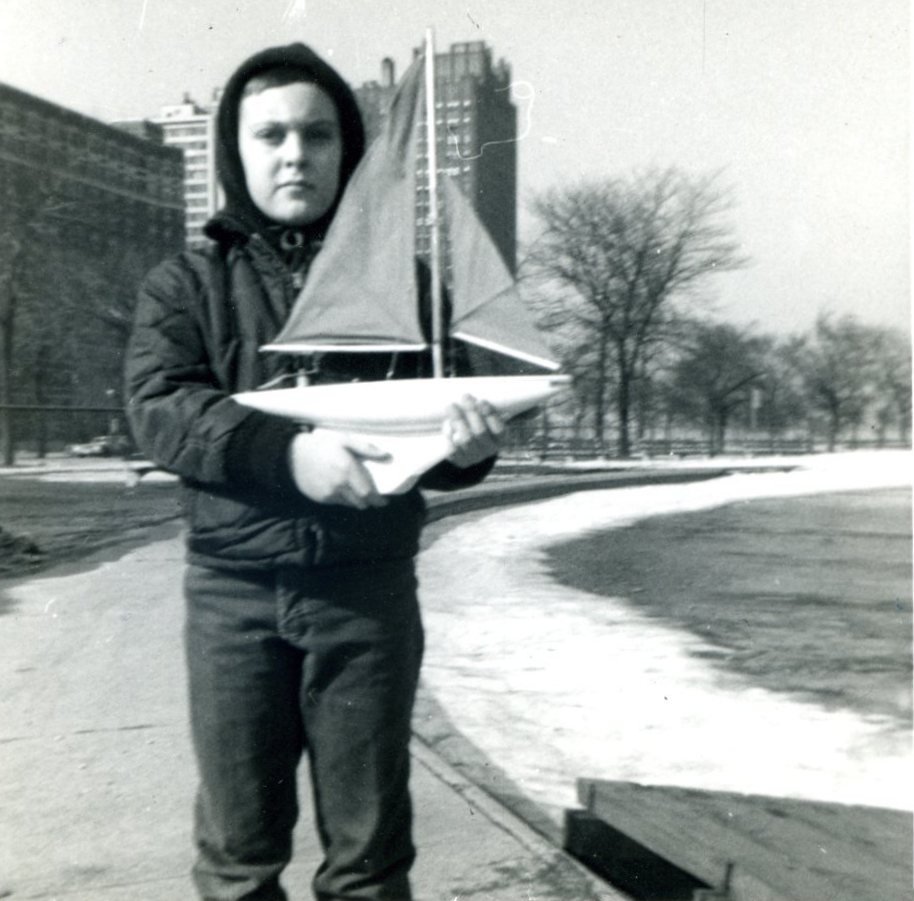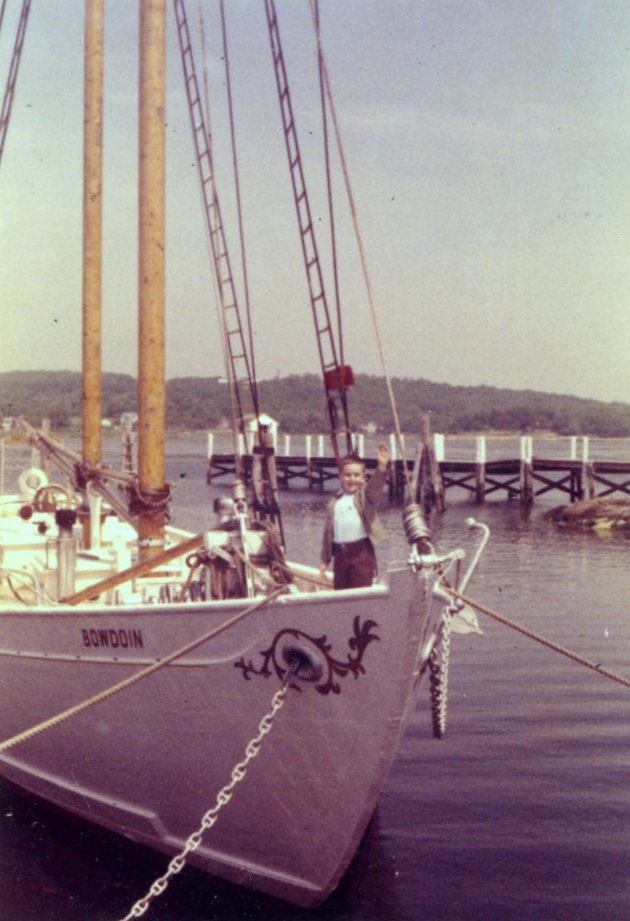|
|
All the humor that's fit to print
Handling the jib I release the halyard completely to just go where it may (generally to the top of the mast), which gets the sail on the deck. From there, just wad it up in a ball of sorts and stuff it through the forward hatch. From inside, repeating grasping technique earlier used on the deck, and when I have the whole wadded, wet, dirty mess in hand, and stuff it tightly into the most out of the way place in the forepeak, somewhere around the wife's clothes is best, and then walk away and ignore the entire mess like you do in the spare bedroom closet, and promise yourself you'll do better next time. And, there's the added benefit of some strange new spots on the sail that weren't there before, kind of like a tie-dyed shirt.
The Liveaboard Simulator - So, you think you might want to try living aboard. Try the Live Aboard Simulator
Why boating is fun...
How to dock a boat courtesy of Captain Ron.
Our friends at All Things Boat have put together this really funny page devoted to boat names. If you're in need of inspiration when naming your next boat, check out that page. They've got a list of boat names for each type of boater. Enjoy!




Seriously... 
First sailboat ride...

Sailing - The fine art of getting wet and becoming ill, while going nowhere slowly at great expense (equivalent to standing in a cold shower, fully clothed, throwing up, and tearing up $100 bills, while a bunch of other people watch you). Beam Sea - A situation in which waves strike a boat from the side, causing it to roll unpleasantly. This is one of the four directions from which wave action tends to produce extreme physical discomfort. The other three are 'bow sea' (waves striking from the front), 'following sea' (waves striking from the rear), and 'quarter sea' (waves striking from any other direction). Boom - Called boom for the sound that's made when it hits crew in the head on its way across the boat. For slow crew, it's called 'boom, boom.' Bulkhead - Discomfort suffered by sailors who drink too much. Calm - Sea condition characterized by the simultaneous disappearance of the wind and the last cold beverage. Course - The direction in which a skipper wishes to steer his boat and from which the wind is blowing. Also, the language that results by not being able to. Crew - Heavy, stationary objects used on shipboard to hold down charts, anchor cushions in place and dampen sudden movements of the boom. Current - Tidal flow that carries a boat away from its desire destination or toward a hazard. Flashlight - Tubular metal container used on shipboard for storing dead batteries prior to their disposal. Fluke - The portion of an anchor that digs securely into the bottom, holding the boat in place; also, any occasion when this occurs on the first try. Zephyr - Warm, pleasant breeze. Named after the mythical Greek god of wishful thinking, false hopes, and unreliable forecasts. Gybe/Jibe - A common way to get unruly guests off your boat. Tack - A common sticky substance left in the cockpit and on deck by other people's kids, usually in the form of foot- or hand-prints. (See Gybe/Jibe for removal technique.) Painter - A line you use to tow the dingy... also especially useful for preventing Tack. Jack Line - 'Hey baby, want to go sailing?' COB - Cash Over Board BOAT - Break Out Another Thousand Red and blue boats collide... When that happens, they are marooned of course.... Yo-yo - A ship carrying a cargo of yo-yos, bound for San Francisco from Hong Kong, was hit by a typhoon and sank twenty-three times. Telling stories - A fairy-tale begins 'Once upon a time...' A sea story begins 'So there I was...' The experience of boat ownership. Standing fully-clothed under a cold shower, tearing up 100-dollar bills. Cruising - Fixing your boat in exotic locations. Anchor light - A small light designed to discharge the battery by morning. Baggywrinkle - The effect of sun and salt spray on your face. Beating to windward - A method of flogging crew to increase upwind performance when racing. Bitter end - The finish of a race when you are last over the line. Boomkin - A small, young boom, less than one year old. Bottom paint - What you get when the cockpit seats have just been painted. Bow - A gesture from the helmsman as he crosses the finish line first. Chart - A type of map which shows exactly where you are aground. Clew - An indication from the skipper as to what he might do next. Companionway - A double berth. Deadrise - Getting up to check the anchor at 0300. Ded reckoning - A course leading directly to a reef. Deviation - Any departure from the captain's orders. Dunnage - See Rhumb line for process. Emergency mooring lines - Old ropes too rotten to use reguarly but too good to throw away. Estimated position - A place you have marked on the chart where you are sure you are not. Flying jib - Any jib when the sheets have gone overboard. Freeboard - Food and liquor supplied by the owner. Great Circle Route - The ship's course when the rudder is jammed. Hanging locker - A small, enclosed space designed to keep foul weather gear wet and to turn all other clothing green. Hatch - A container on board in which to keep eggs. Hawse pipe - The skipper's pipe. Headway - What you are making if you can get the toilet to work. Heaving line - A rope used to hold onto while being sick. Knot meter - An instrument for measuring the the speed with which any line will become tangled. Landlubber - Anyone on board who wishes he or she were not. Latitude - The number of degrees off course allowed a guest at the helm. Life preserver - A mildewed device for emergency use, stowed under the extra lines and anchors. Lubber line - Two or more guests waiting to get ashore. Permanent mooring - A sunken boat, anchored. Pitch - Why do altos and sopranos make good sailors? Because they can handle high seas. Port - A fine wine, always stowed on the left side of the boat. Reef point - The part of a rock sticking out of the water. Rhumb line - Two or more crew members waiting for a drink. Spelling is archaic. Rope ladder - A ladder designed to get you into the water but not back out. Running free - Cruising without using the engine. Sextant - A device for detecting the night-time activity of guests. Shroud - Equipment used in connection with the wake. Spinnaker - A large sail used in dead calms to keep the crew busy. Spring line - A rope purchased at the beginning of the season. Square rigger - A rigger over 30. Swell - A wave that's just great. Tell-tale - A crew member who lets the guests know that the skipper usually gets seasick. Variation - The change in menu effected when the labels have soaked off the canned goods. Pulpit - somewhere you go to pray you are going to pick up a mooring buoy. Tabernacle - something similar to pulpit, but a different religion. Noserly - What to call the wind direction when it comes from where you're going Ships coming in - If your ship doesn't come in, swim out to it. (Jonathan Winters) Definition of a sailboat race - Two sailboats going in the same general direction. Where do you take a sick boat? - To the dock. How may jerks on a line does it take to catch a fish? Two... one on each end of the line. What is a knot? - See boom. Sailing language - See Course.